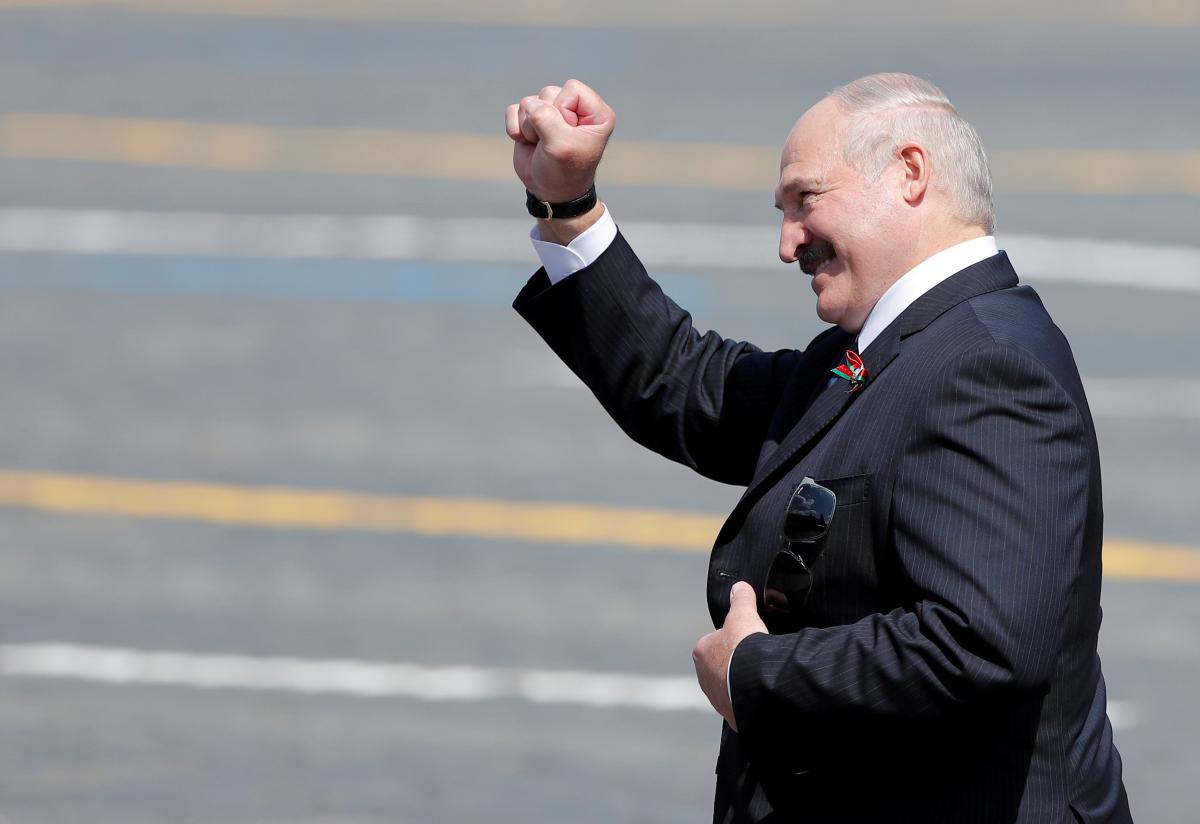
Belarus is beefing up securing on the border with Ukraine and is to shut down its border with Poland and Lithuania.
This was announced by Belarusian President Alexander Lukashenko, according to the Belarusian media outlet tut.by.
"We are forced to withdraw troops from the streets, put half of the army under arms and close the state border in the west – with Lithuania and Poland," Lukashenko said.
Meanwhile, according to him, security on the border with Ukraine will be stepped up.
"We are forced to strengthen the state border, to the greatest regret, with our fraternal Ukraine," he added.
As Radio Free Europe / Radio Liberty's Belarusian service adds, it is not yet clear in practice what this move means.
Lukashenko insists he is not an aggressor, mentioning he grew up in a village where everyone protected and helped each other, tut.by said.
"I don't want our country to fight. Moreover, I don't want Belarus and Poland, Lithuania to turn into a theater of military operations where other than our issues will be resolved," he said.
He also appealed to the peoples of Lithuania, Poland, and Ukraine: "Stop your insane politicians, don't let the war break out."
As he was speaking at a forum for women, he called on them not to worry, as "the men will solve this problem."
He also called the situation "very complicated" and suggested that "the situation of the entire Europe is being decided here."
"It shouldn't be let to turn into a hot war. Their arsenal has not so many tools left, and we are on the brink of a terrible disaster. If they come here, we will have to answer. We won't kneel – even if we face this [situation] alone," Lukashenko stressed.
Read alsoLukashenko asks Putin for "some types of weapons"
Recent developments in Belarus in brief
- On August 9, presidential elections were held in Belarus. The country's Central Election Commission announced the final election results. In particular, 80.1% of voters supported incumbent President Alexander Lukashenko, 10.1% voted for Svetlana Tikhanovskaya, 1.67% for Anna Kanopatskaya, 1.2% for Andrey Dmitriev, and 1.14% for Sergei Cherechnya. Some 4.59% voted against all candidates.
- Thousands took to the streets to protest what many believe was a rigged vote count. Riot police violently cracked down on protesters.
- Belarus' Ministry of Internal Affairs said about 7,000 protesters had been detained in different cities since August 9. On the evening of August 13, the authorities started to release detainees.
- On August 16, the March of Freedom, the largest protest in the history of Belarus, took place in Minsk. Hundreds of thousands of people joined in.
- Lukashenko has repeatedly claimed "foreign interference" in the election and external efforts to foment the protests. He spoke with Russian President Vladimir Putin who had promised him comprehensive assistance upon request.
- On August 27, Putin suggested sending Russian security forces to suppress protests in Belarus.
- The European Union declared non-recognition of the Belarus election results and reached an agreement to impose sanctions against Belarusian officials in response to vote rigging and the use of violence against protesters.
- On September 15, the Verkhovna Rada of Ukraine adopted a statement on Belarus. Ukrainian lawmakers said the presidential elections in that country were unfair. They condemned repression against protesters and vowed support for sanctions to be introduced by the European Union against Belarusian officials.

